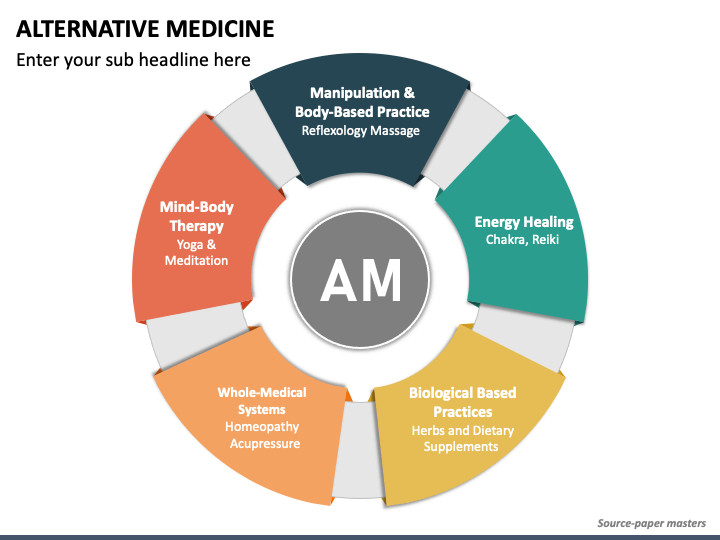Exploring Alternative Medicine: Pros, Cons, and Evidence
Introduction
In recent years, there has been a growing interest in alternative medicine as individuals seek natural and holistic approaches to healthcare. Alternative medicine encompasses a wide range of practices and therapies that are outside the scope of conventional medicine. This article delves into the world of alternative medicine, exploring its pros, cons, and the evidence supporting its effectiveness.
Table of Contents
- Understanding Alternative Medicine
- The Pros of Alternative Medicine
- Personalized Approach to Healing
- Focus on Holistic Well-being
- Minimal Side Effects
- Complementary to Conventional Medicine
- Increased Patient Empowerment
- The Cons of Alternative Medicine
- Lack of Scientific Evidence
- Delayed or Inadequate Treatment
- Potential Interactions with Conventional Treatments
- Unregulated Practices and Safety Concerns
- Limited Insurance Coverage
- Evidence-based Alternative Medicine
- Acupuncture: A Promising Therapy
- Herbal Medicine: Bridging Tradition and Science
- Mind-Body Interventions: Harnessing the Power of the Mind
- Chiropractic Care: Aligning the Body’s Energy
- Homeopathy: The Principle of “Like Cures Like”
- Conclusion
- FAQs
Understanding Alternative Medicine

Alternative medicine refers to a diverse range of therapies and practices that aim to promote healing and improve overall well-being. Unlike conventional medicine, which relies heavily on pharmaceuticals and surgical interventions, alternative medicine emphasizes a more holistic approach to health. It encompasses various modalities such as acupuncture, herbal medicine, chiropractic care, homeopathy, and mind-body interventions.
The Pros of Alternative Medicine

Personalized Approach to Healing
One of the key advantages of alternative medicine is its personalized approach to healing. Practitioners of alternative medicine often spend more time with their patients, thoroughly assessing their medical history, lifestyle, and emotional well-being. This comprehensive understanding allows them to tailor treatment plans to suit individual needs, focusing on addressing the root causes of illness rather than just managing symptoms.
Focus on Holistic Well-being
Unlike conventional medicine, which tends to isolate symptoms and diseases, alternative medicine adopts a holistic perspective. It recognizes the interconnectedness of the body, mind, and spirit and aims to restore balance and harmony within the individual. By considering all aspects of a person’s well-being, alternative medicine seeks to promote not only physical health but also mental, emotional, and spiritual wellness.
Minimal Side Effects
Many alternative therapies and practices have minimal side effects compared to conventional treatments. Pharmaceutical drugs often come with a range of potential adverse reactions, whereas alternative medicine approaches, such as herbal remedies or acupuncture, generally have fewer unwanted effects. This can be particularly beneficial for individuals who are sensitive to or prefer to avoid pharmaceutical interventions.
Complementary to Conventional Medicine
Alternative medicine can work in conjunction with conventional medical treatments, offering a complementary approach to healthcare. Integrative medicine, which combines the best of conventional and alternative therapies, has gained recognition and popularity in recent years. By combining treatments, patients may benefit from a more comprehensive and synergistic approach to their health challenges.
Increased Patient Empowerment
Alternative medicine often empowers patients to take an active role in their own healing journey. It encourages individuals to make lifestyle changes, adopt healthier habits, and engage in self-care practices. This shift in focus from a passive patient to an empowered individual can have a positive impact on overall well-being and long-term health outcomes.
The Cons of Alternative Medicine

Lack of Scientific Evidence
One of the main criticisms of alternative medicine is the lack of robust scientific evidence supporting its efficacy. While some alternative therapies have been extensively studied, many others lack rigorous scientific research. This makes it challenging to evaluate their true effectiveness and can lead to skepticism within the medical community.
Delayed or Inadequate Treatment
Relying solely on alternative medicine may result in delayed or inadequate treatment for certain conditions. Some alternative therapies, while beneficial for certain health issues, may not be suitable for acute or life-threatening conditions. In these cases, prompt and appropriate conventional medical intervention is crucial to ensure the best possible outcomes.
Potential Interactions with Conventional Treatments
Alternative medicine treatments can interact with conventional medications, potentially compromising their effectiveness or causing adverse reactions. It is essential for individuals considering alternative therapies to inform their healthcare providers about all the treatments they are undergoing to avoid any potential negative interactions.
Unregulated Practices and Safety Concerns
Unlike conventional medicine, alternative medicine practices are not always subject to the same level of regulation and oversight. This lack of regulation raises concerns about the safety and efficacy of certain alternative therapies. It is crucial for individuals to research and choose reputable practitioners who adhere to ethical standards and prioritize patient safety.
Limited Insurance Coverage
Insurance coverage for alternative medicine varies widely, and in many cases, it may not be covered at all. This can pose a financial barrier for individuals seeking alternative treatments, as they often have to pay out of pocket. Limited insurance coverage may limit access to alternative therapies, making them less accessible to those who could benefit from them.
Evidence-based Alternative Medicine

While the lack of scientific evidence is a common criticism of alternative medicine, some practices have shown promise in research studies. Here are a few examples:
Acupuncture: A Promising Therapy
Acupuncture, an ancient Chinese practice involving the insertion of thin needles into specific points on the body, has gained recognition for its potential benefits. Research suggests that acupuncture may be effective in relieving pain, reducing nausea and vomiting, and improving various conditions such as chronic headaches and osteoarthritis.
Herbal Medicine: Bridging Tradition and Science
Herbal medicine, utilizing plant-based remedies, has been used for centuries in various cultures. Some herbal remedies, such as St. John’s Wort for depression or ginger for nausea, have shown positive results in scientific studies. However, it is essential to consult with a knowledgeable practitioner and exercise caution to ensure safety and efficacy.
Mind-Body Interventions: Harnessing the Power of the Mind
Mind-body interventions, such as meditation, yoga, and mindfulness practices, have gained popularity for their potential benefits in stress reduction, anxiety management, and improving overall well-being. Research suggests that these practices can positively impact mental health and may even have physiological effects on the body.
Read more about The Vitality of Regular Exercise for Optimal Health and Well-being
Chiropractic Care: Aligning the Body’s Energy
Chiropractic care focuses on the alignment of the spine and musculoskeletal system to promote overall health. It has been found helpful in managing conditions like back pain, neck pain, and certain types of headaches. While more research is needed to fully understand its mechanisms, many individuals report improvements in their symptoms with chiropractic treatment.
Homeopathy: The Principle of “Like Cures Like”
Homeopathy operates on the principle of “like cures like” and utilizes highly diluted substances to stimulate the body’s healing response. While scientific evidence supporting homeopathy is limited, some studies suggest potential benefits for certain conditions, such as allergies and respiratory illnesses. It is important to consult with a qualified homeopath for personalized advice.
Conclusion
Alternative medicine offers a diverse array of therapies and practices that aim to provide holistic and personalized approaches to healthcare. While it has its pros, such as a focus on individualized care and minimal side effects, there are also cons to consider, such as a lack of scientific evidence and potential interactions with conventional treatments. It is essential for individuals to approach alternative medicine with an open mind, conduct thorough research, and consult with qualified practitioners to make informed decisions about their health.
FAQs
-
Is alternative medicine safe?
Alternative medicine can be safe when practiced by qualified professionals and when individuals make informed choices. It is important to research and choose reputable practitioners who prioritize patient safety. -
Can alternative medicine replace conventional medicine?
Alternative medicine should not replace conventional medicine, especially for acute or life-threatening conditions. It can, however, complement conventional treatments and be used in conjunction with them. -
Is alternative medicine covered by insurance?
Insurance coverage for alternative medicine varies widely. Some insurance plans offer limited coverage for certain alternative therapies, while others may not cover them at all. It is important to check with your insurance provider regarding coverage details. -
How can I find a reliable alternative medicine practitioner?
When seeking alternative medicine practitioners, it is advisable to do thorough research, read reviews, and seek recommendations from trusted sources. Look for practitioners who are properly trained, licensed, and have relevant experience. -
What should I consider before trying alternative medicine?
Before trying alternative medicine, it is important to discuss your options with your primary healthcare provider. They can provide guidance, assess potential interactions with your current treatments, and help you make informed decisions about your health.







 Viesearch - The Human-curated Search Engine
Viesearch - The Human-curated Search Engine

4 Comments